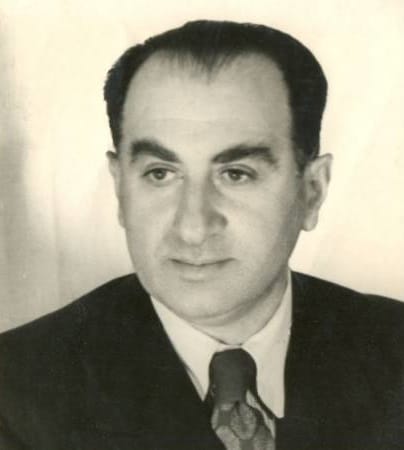One of the remarkable names of the theatrical life of Armenia in the first half of the past century, Armen (Aram) Gulakian, was born on November 1, 1899, in Tiflis (nowadays Tbilisi), the capital of Georgia, in the family of a craftsman. After receiving his education at the local elementary school, he graduated from the Nersisian School in 1921.
Gulakian studied at the studios of Armenian actors Amo Kharazian and Ovi Sevumian in 1918-1919. Then he moved to Moscow and studied at the Armenian Dramatic Studio between 1921 and 1924. Upon his return to Tiflis in 1925, he entered the local Armenian theatrical group as an assistant director. He failed in his attempt to organize a theater-studio with the graduates from Moscow who lived in the Georgia capital.
Health reasons drove him to move to Dilijan in 1926, where he organized a touring theater group, for which he wrote scripts. He also acted with them and directed the group. After his health improved, he moved to Yerevan and was admitted to the First State Theater (called Gabriel Sundukian Academic Theater after 1937). He became a director there in 1927, and he was the head director between 1930 and 1938 and 1944 and 1953. Among his most important plays were Sundukian’s Khatabala (1927) and Pepo (1929, 1935, 1948), and Shakespeare’s Macbeth (1933), where he managed to create interesting stage situations and deploy his own theatrical conceptions.
In 1938 Gulakian went to the Alexander Spendiarian Opera and Ballet Theater as head director (1938-1945 and 1958-1960). He staged Anush and David Bek, by Armen Tigrania; Arshak II, by Dikran Chukhajian, and operas of Georges Bizet, Giuseppe Verdi, Giacomo Puccini, and others. In 1955-1956 he was the head director of the Konstantin Stanislavki Russian Theater.
The director received the title of Emeritus Artist of Armenia in 1940 and won the State Prize of Armenia (then named after Stalin) in 1946 and 1950.
Gulakian wrote and directed several plays had roles in the pioneering movies “The Honor” (1925) and “Pepo” (1935), and starting in 1944 headed groups of actors and directors at the Institute of Art and Theater of Yerevan.
He passed away on September 22, 1960, in Yerevan, where a street is named after him.

